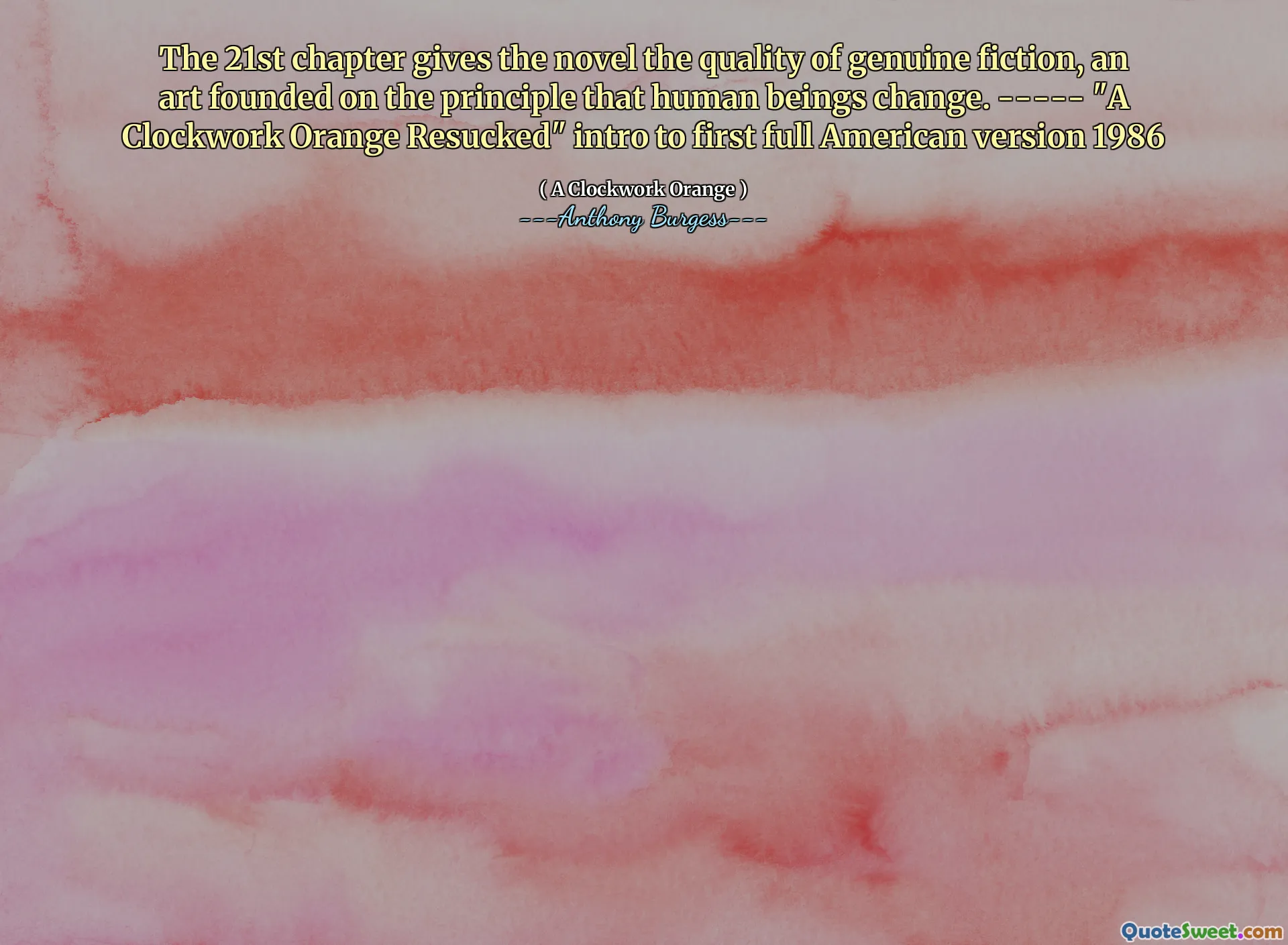
The 21st chapter gives the novel the quality of genuine fiction, an art founded on the principle that human beings change. ----- "A Clockwork Orange Resucked" intro to first full American version 1986
In "A Clockwork Orange," the 21st chapter serves as a significant turning point that imparts the narrative with a deeper sense of realism and authenticity. This chapter emphasizes the idea that characters are not static; rather, they evolve over time, reflecting the complexities of human nature and the capacity for change. Such a transformation is crucial, illustrating that individuals can learn from their experiences and alter their paths.
Anthony Burgess, in the introduction to the first complete American edition of the novel in 1986, underlines the importance of this theme. He suggests that the notion of change is foundational to the art of storytelling, as it resonates with readers and mirrors real life. Through this lens, Burgess captures the essence of his characters' journeys, making the work not only a compelling tale but also a profound commentary on the human condition.









